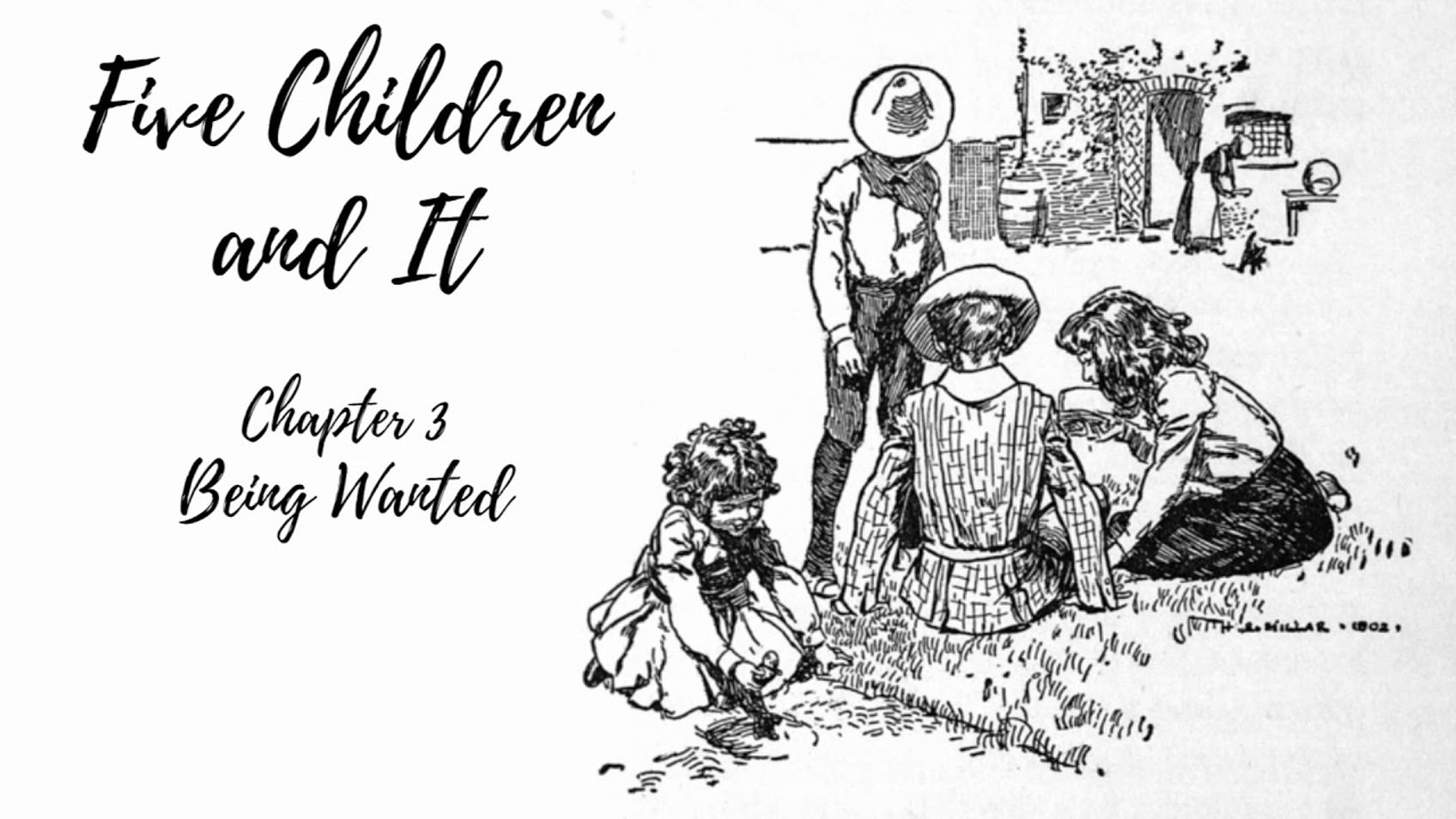Five Children and It—Chapter 3: Being Wanted
May 7, 2020

Alastair Roberts
For the Easter season, I am posting some rather different things on this channel, in addition to my regular output, as a little gift to my followers and supporters. This is the third book I am reading through: 'Five Children and It', by E Nesbit. I hope that you all enjoy!
If you are interested in supporting this project, please consider supporting my work on Patreon (https://www.patreon.com/zugzwanged), using my PayPal account (https://bit.ly/2RLaUcB), or buying books for my research on Amazon (https://www.amazon.co.uk/hz/wishlist/ls/36WVSWCK4X33O?ref_=wl_share).
You can also listen to the audio of these episodes on iTunes: https://itunes.apple.com/gb/podcast/alastairs-adversaria/id1416351035?mt=2.
More From Alastair Roberts
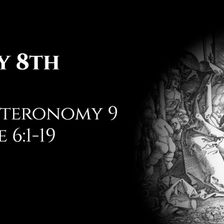
May 8th: Deuteronomy 9 & Luke 6:1-19
Alastair Roberts
May 7, 2020
Not because of your righteousness! The Son of Man is the Lord of the Sabbath.
Reflections upon the readings from the ACNA Book of Common Prayer (http
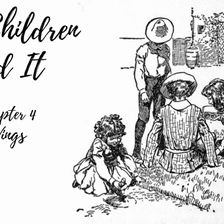
Five Children and It—Chapter 4: Wings
Alastair Roberts
May 8, 2020
For the Easter season, I am posting some rather different things on this channel, in addition to my regular output, as a little gift to my followers a
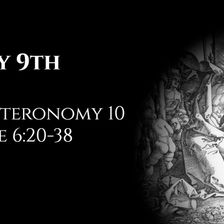
May 9th: Deuteronomy 10 & Luke 6:20-38
Alastair Roberts
May 8, 2020
Circumcise your hearts! Beatitudes and woes.
Reflections upon the readings from the ACNA Book of Common Prayer (http://bcp2019.anglicanchurch.net/).
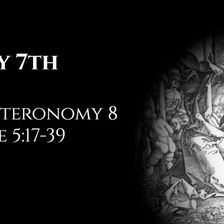
May 7th: Deuteronomy 8 & Luke 5:17-39
Alastair Roberts
May 6, 2020
Memory as a defence against decadence. The Son of Man has authority to forgive sins.
Reflections upon the readings from the ACNA Book of Common Praye
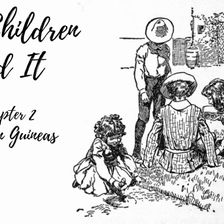
Five Children and It—Chapter 2: Golden Guineas
Alastair Roberts
May 6, 2020
For the Easter season, I am posting some rather different things on this channel, in addition to my regular output, as a little gift to my followers a
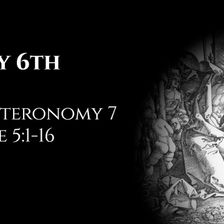
May 6th: Deuteronomy 7 & Luke 5:1-16
Alastair Roberts
May 5, 2020
No covenants with the peoples of the land. Jesus calls Simon.
Some passages referenced:
Exodus 34:12-16 (warning against covenants, idolatry, and int
More on OpenTheo

How Can We Know Who Is Teaching the Same Gospel Paul Taught?
#STRask
February 16, 2026
Questions about how we can know who is teaching the same gospel Paul taught, and whether or not Jeremiah 1:5 supports the idea that we pre-existed in

Is It Possible There’s a Being That’s Greater Than God?
#STRask
February 5, 2026
Questions about whether it’s possible there’s a being that’s greater than God and that’s outside of God’s comprehension and omniscience, and how to ex

What Is Wrong with Wokeness? With Neil Shenvi
Life and Books and Everything
January 19, 2026
In this timely interview, Kevin talks to Neil Shenvi about his new book (co-authored with Pat Sawyer), entitled “Post Woke: Asserting a Biblical Visio

How Can I Explain Modesty to My Daughter?
#STRask
November 27, 2025
Questions about how to explain modesty to a nine-year-old in a way that won’t cause shame about her body, and when and how to tell a child about a pre

When I Can’t Stop Thinking About Something, Is That God Speaking?
#STRask
December 1, 2025
Questions about whether having a recurring thought is an indication God is speaking to you, what to say to someone who says they sinned because “God t

How Do You Justify Calling Jesus the Messiah?
#STRask
December 18, 2025
Questions about how one can justify calling Jesus the Messiah when he didn’t fulfill the Hebrew messianic prophecies, and whether the reason for the v

Are Demon Possessions and Exorcisms in the New Testament Literal?
#STRask
December 11, 2025
Questions about whether references to demon possessions and exorcisms in the New Testament are literal, how to talk to young children about ghosts, an

How Do I Determine Which Topics at Work Are Worth Commenting On?
#STRask
January 5, 2026
Questions about how to determine which topics at work are worth commenting on, and a good way to respond when you’re in a group Bible study and hear e

How Do I Reconcile the Image of God as Judge with His Love, Grace, and Kindness?
#STRask
October 20, 2025
Questions about how to reconcile the image of God as a judge with his love, grace, and kindness, why our sins are considered to be sins against God, a

What Are Some Good Ways to Start a Conversation About God with Family Members?
#STRask
October 30, 2025
Questions about how to start a conversation about God with non-Christian family members, how to keep from becoming emotional when discussing faith iss

Does Open-Mindedness Require Studying Other Religions Before Becoming a Christian?
#STRask
February 9, 2026
Questions about the claim that if Christians really want to be open-minded, they need to read and study other religions before committing to Christian

Are You Accursed If You Tithe?
#STRask
December 15, 2025
Questions about whether anyone who tithes is not a Christian and is accursed since Paul says that if you obey one part of the Mosaic Law you’re obliga

Can Two Logical People Come to Conflicting Conclusions Without Committing a Fallacy?
#STRask
January 8, 2026
Questions about whether two logical people can come to conflicting conclusions on a topic without committing a fallacy, how Greg, as a public figure,

What About Those Who Never Heard the Name of Jesus?
#STRask
December 22, 2025
Questions about what will happen to those who never heard of Jesus or were brought up in a different faith, whether there’s biblical warrant to think

Why Would Any Rational Person Have to Use Any Religious Book?
#STRask
December 8, 2025
Questions about why any rational person would have to use any religious book, whether apologetics would be redundant if there were actually a good, un
